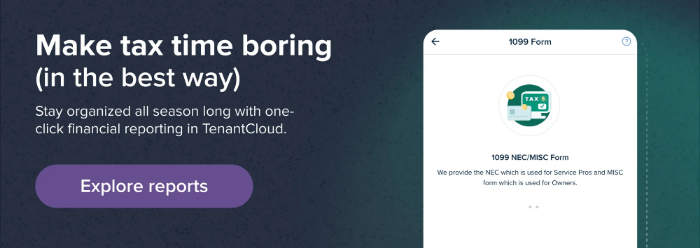Inflation is everyone’s favorite word these days, isn’t it? Okay, not really. But with the recent Inflation Reduction Act (IRA) of 2022 still in effect, many landlords are wondering what it means for them. Since inflation directly affects real estate, you may be facing new, unforeseen challenges as a landlord, realtor, or investor.
Luckily, the IRA is a landmark legislation that aims to combat inflation while directly targeting climate change and encouraging energy independence. This is good news for anyone interested in clean energy or who is already investing in it.
As a landlord, you may be wondering which tax breaks you qualify for, if solar or heat pumps are included in these tax breaks, and what’s going on with home energy audits and solar panel installations. Since it’s all a bit nuanced, let’s dive in further.
What Is the Inflation Reduction Act of 2022?
The Inflation Reduction Act is a recent law put into place to minimize inflation by reducing the price of prescription drugs, lowering the deficit, and incentivizing clean energy. It was signed August 16, 2022 by President Joe Biden, with many of the benefits starting January 1, 2023, and some benefits retroactively applying to 2022.
The main goal of the IRA is to encourage homeowners, including landlord's rental homes, to have higher efficiency ratings than typical state and energy codes. The law aims to encourage taxpayers to drastically reduce carbon emissions (the greenhouse gases responsible for climate change) over the next ten years, among other economic goals.
This involves additional tax credits for property-related items such as the following:
- Solar energy systems
- Energy efficient developments (commercial and residential)
- Electric water heaters
- Electric heat pumps
- Electric vehicles (not rental-related, but worth mentioning)
- Electric vehicle chargers
How Does the Inflation Reduction Act Affect Landlords?
There are two tax benefits that you may be interested in as a landlord or investor, especially if you plan to “greenify” your building practices. These tax breaks are available for new construction as well as making greener upgrades to existing buildings.
The first tax break is called the 179D tax deduction, which involves residential and commercial developments:
- 179D: This new tax break allows owners and developers to get credit for building an energy-efficient commercial or residential building. While there are specific requirements, such as having energy efficiency on the most recent ASHRAE scale, taxpayers can have immediate deductions of as much as $5.36 per square foot.
The second tax benefit that may affect landlords is called the 45L tax credit, which is designed to reduce energy use overall:
- 45L: On September 27, 2023, the Internal Revenue Service (IRS) issued Notice 2023-65, which contains guidance for taxpayers using the 45L credit. This tax credit was originally set to end in 2021 but has since been extended. 45L is geared towards landlords who own multifamily units. If energy-efficiency requirements are met, landlords can make up to $5,000 per unit for meeting the Energy Star benchmark.
Does the Inflation Reduction Act Include Solar?
Yes, and there are specifics you need to know. A previous solar tax credit, the residential clean energy credit, was in place before the IRA, which gave homeowners a tax break for purchasing rooftop solar panels. It was set to expire in 2025, but the IRA renewed this credit and amplified it—boosting it from 26% to 30% of the total cost of the system.
The residential solar credit can be applied towards the panels, solar array, solar batteries, or cost of labor and electrical work. So, if you purchased a rooftop solar system and spent $25,000, you may only need to pay less than $18,000 when all is said and done. As always, consult a tax professional for guidance. (We’re not tax professionals.) You can also visit the IRS Clean Energy Credit for more details.
Does the Inflation Reduction Act Include Heat Pumps?
Yes, the IRA includes heat pumps. Homeowners can qualify for a tax credit of 30% of the purchase and installation of a qualified heat pump. Additionally, the High-Efficiency Electric Home Rebate Act (HEEHRA), the IRA’s official heat pump incentive program, offers an even higher incentive for those who qualify. Some homeowners may receive rebates of 100% to 50% off a heat pump installation of up to $8,000 based on income and overall eligibility.
Why Heat Pumps?
Unlike a traditional HVAC system that uses a conventional gas furnace and air conditioning system to heat and cool your home year-round, a heat pump is a more energy-efficient alternative. Heat pumps operate by pulling heat from the inside of your home and moving it outside when it’s warm outside, and then moving outdoor heat to warm up your home in cooler months. This results in in-home heat that is not created from fossil fuels.
Which Tax Breaks Should Landlords Take?
The IRA modifies and extends the Energy Efficient Home Credit (IRC Sec. 45L), which you may already be familiar with. Elements of this tax credit apply to landlords.
If You Made Your Rental More Eco-Friendly:
If you’re a landlord or property owner who rehabilitated a single- or multi-family rental to make it more energy efficient, you may be eligible for up to a $5,000 credit. To qualify for the maximum IRA credit, you are required to pay a prevailing wage to workers who perform the labor. The Environmental Protection Agency’s program outlines the requirements, which can change by state or region. If you decide to pursue this credit, be sure to consult a tax expert. It requires understanding various details and some complex calculations.
If You Lease a Portion of Your Primary Home:
If you purchased any of these items recently, you may be eligible for several IRA tax breaks or rebates:
- Electric stove, cooktop, range, or oven: If you purchase one of these electric appliances, you may be able to receive a full rebate depending on your area and household eligibility. These electric appliances offer better energy efficiency than gas stoves and will reduce pollutants in your living space.
- Electric heat pump clothes dryer: Depending on household eligibility, the purchase of an electric heat pump clothes dryer may be covered for 100% of the purchase and installation costs with available rebates.
- Solar panels: When you put in solar panels, you can receive up to 30% of the installation cost back in federal tax credits. Additionally, if your state offers incentives for installing solar panels, you can claim compensation from both state and federal entities.
- Weatherization services: Working to reduce how much energy your home leaks can also provide tax breaks and rebates. When you conduct a home energy audit to find where your home is leaking most, you can receive up to $150 back. If you replace an external facing door, you can receive up to 30% of the project cost, up to $250 (limit of two external facing doors per year). When you replace windows, you can receive up to 30% of the project cost back, up to $600. You can also claim 30% of project costs for improving your insulation and sealing air spaces, up to $1,200.
- Energy efficient heat pumps and heat pump water heaters: The IRA could cover these purchases up to 100% with available tax credits and rebates, depending on household eligibility.
- Electrical breaker box and/or wiring upgrade: With new upgraded appliances, you may need to upgrade your electrical box, and some of this upgrade is covered, 30% of the project up to $600 through rebates and tax breaks.
Conclusion
With the addition of these new tax incentives, property managers will be able to save money on their rentals while taking part in an environmentally-conscious future. To take advantage of these benefits, make sure you find a qualified and knowledgeable tax professional. Keep in mind that some benefits may apply to your 2023 taxes, so review any changes you’ve made recently to see if you qualify.
If you plan to upgrade your rental property this year or next, make sure to track all your receipts, expenses, and other necessary details on your TenantCloud account.
Sources:
https://www.democrats.senate.gov/imo/media/doc/inflation_reduction_act_one_page_summary.pdf
https://www.irs.gov/inflation-reduction-act-of-2022
https://www.landlordstudio.com/blog/the-inflation-reduction-act-landlords
https://www.cpajournal.com/2023/01/20/tax-changes-in-the-inflation-reduction-act-of-2022-2/
https://www.landlordstudio.com/blog/the-inflation-reduction-act-landlords
https://www.energy.gov/eere/solar/homeowners-guide-federal-tax-credit-solar-photovoltaics
https://www.eisneramper.com/ira-45l-credit-1122/
https://www.naahq.org/what-passing-inflation-reduction-act-means-rental-housing-providers
https://deq.nc.gov/energy-climate/state-energy-office/inflation-reduction-act-home-rebates
https://www.energystar.gov/about/federal_tax_credits/windows_skylights







